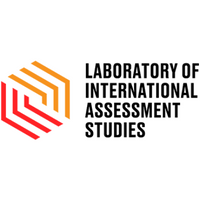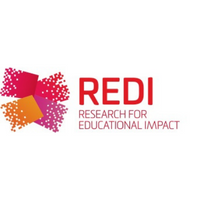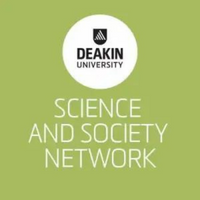Event highlights: Decolonising Data Summit - 04.04.2023
The Decolonising Data Summit, held online on April 4, 2023, discussed the decolonisation of assessments, equal access to education and the impacts of technology on education. These topics were touched upon in a keynote, and two panels, and attended by over 280 people. The summit was organized in partnership with the Laboratory of International Assessment Studies (lab), Deakin University’s Strategic Research and Innovation Centre, Centre for Research for Educational Impact (REDI), and the Deakin Science and Society Network (SSN).
Overall, the speakers of panel 1 emphasized the need for more inclusive approaches to assessments that consider cultural sensitivity and equity while involving local communities in the design of curricula and education targets. They highlighted the importance of shifting the conversation away from ranking and comparative analytical methods to a more human-centered design approach that considers student needs and marginalized voices. The speakers of panel 2 discussed the need to decolonise ed-techand create a more equitable educational landscape.The panelists shared their insights and experiences on decoloniality in ed-tech, the lack of trust and transparency, techno-solutionism, and the impact of ed-tech on education. They highlighted issues such as digital neocolonialism, privacy concerns, marketization of education, and the importance of considering access to technology in the global south.
Keynote on “A New World? Transformational Knowledge and Decolonisation”
Crain Soudien, Professor Emeritus of Education and African Studies at the University of Cape Town, South Africa, began his keynote by introducing some ethical imperatives that regulate individual action, pointing to the need for community and accepting other knowledge systems. He then focused on the concept of knowledge dominance, explaining the processes that cause its legitimation and institutionalisation within societies. The result is an understanding of scientific knowledge as inherently linear, limiting the inclusion of alternative understandings that might challenge the status quo. He mentioned the rise of a normative value chain, which seemingly presents linear and neutral knowledge. However, this knowledge is deeply shaped by power and ideologies, regulating individual behavior and delegitimising alternative ways of thinking.
Crain stressed the diffusion of a “narrow scientism”, whereby empiricism and evidence-based theories are regarded as the most relevant types of knowledge. However, empiricism is limited, as it relies on the argument that only what can be measured is true and trustworthy. This dominant knowledge has affected education, leading to the diffusion of a corporatized, neo-liberal university system. As an example, the professor mentioned “metricised accountability”, referring to the expectation for professors to publish in high-status journals. He then called for the application of transformational knowledge, which constitutes the basis of decolonisation, stressing that our understanding of modernity must not be associated with dominant knowledge anymore. In this way, indigenous knowledge systems can be recognised and appreciated. To conclude, Crain highlighted that critical knowledges can challenge the status quo, inviting different ways of knowing and questioning widely accepted truth claims. The professor called for increased self-consciousness, encouraging openness towards other types of knowledge to become “citizens of the planet” who truly exercise new ways of understanding and knowing.
Panel 1: Decolonising International Assessment
This panel provided a platform for important discussions about how assessments can better serve all learners and promote greater equality in education. Speakers emphasized the importance of decolonising learning outcomes and assessments by including cultural sensitivity and focusing on equity. The panel featured four speakers sharing their expertise, and was moderated by Leon Tikly, professor at the University of Bristol, United Kingdom. Here are the details of each panelist intervention:
Sylvia Schmelkes, Universidad Iberoamericana, Mexico
Sylvia Schmelkes, the former head of the Institute for National Assessments, spoke about how national, international, and large-scale assessments favor students from dominant western cultures, which results in an unjust stigmatization of marginalized students. She suggested that involving indigenous people in the design of their curriculum and education targets would be a more inclusive approach. Leon Tikly asked Sylvia if national and international large-scale assessments pose a risk to diverse knowledge and particular ways of knowing. To this, Sylvia responded that it is a dilemma of needing learning assessment information but lacking the tools to tailor the measurements to the target population, as well as comparable indicators. She stressed the importance of progress towards SDG4 “Quality Education” and the need to reconcile this with addressing diversity.
Baela Jamil, Idara-e-Taleem-o-Aagahi, Pakistan
Baela Jamil spoke about citizen-led assessments in Pakistan that examined why large numbers of children were not learning basic skills and how this fed into the reflection of SDG4 and sustainable development in general. She also introduced the schools 2030 initiative, which aims to take a human-centered design approach to assessments that include academic and non-academic components. Leon Tilky asked Baela how the unequal relationship between North and South in learning assessments could be addressed. She evoked the notion of pyramids and how they relate to power, dominance, exclusion, and injustice. She highlighted that while these initiatives are first steps for the Global South to participate in the discussion, there is continuous progress to be achieved.
César Guadalupe, Universidad del Pacífico Research Center, Peru
César Guadalupe, former head of learning outcomes at UNESCO, discussed the problematic aspects of the current use of standardized tests created in a Western context and the need to approach education as a human right with a focus on equity. He called for other perspectives, the need for other tools and instruments created in local contexts, and the irrelevance of rankings as a comparative analytical method. Leon Tilky asked César how his experience at UNESCO shaped his perception of the decolonisation of learning outcomes and how these could become more inclusive.
Therese Hopfenbeck, University of Melbourne, Australia
Therese Hopfenbeck, who played a role in defining the standardized assessment of the Programme for International Student Assessment (PISA), discussed the importance of focusing on student responses to identify trends and their needs rather than comparing national test results in science, reading or math. Leon Tilky asked Therese how a researcher can learn from PISA assessments while maintaining a critical stance. She answered by emphasizing the need for critical questioning and inclusion of marginalized voices in the conversation.
The panel then engaged in an interactive Q&A with the audience.
Panel 2: Decolonising Ed-Tech
The panel discussion centered around the theme of decolonising ed-tech and its importance in the current landscape of education. The panel featured three speakers, and was moderated by Kathryn Moeller, Assistant Professor at the University of Cambridge, United Kingdom.
Kathryn kicked off the discussion by acknowledging the rapid acceleration of education technology, particularly since the beginning of the pandemic. She stressed the uneven relations of power that constitute education and technology and the need to decolonise both to create a more equitable educational landscape.
Here are the details of each panelist intervention and the questions asked to them:
Taskeen Adam, OpenDevEd
Taskeen Adam, discussed decoloniality in education technology, explaining that it involves breaking down power structures that shape our thinking and behavior. To decolonise education, Taskeen emphasized the importance of reclaiming heritage, roots, language, and culture while challenging the western lens of seeing the world. She cautioned against the dangers of digital neocolonialism and how corporate institutions and ed-tech products can unintentionally impose a colonial perspective of education. Taskeen gave examples of how decoloniality could be achieved, such as Africanization and knowledge entanglement, but noted that different ideas can be contradictory. Taskeen highlighted the colonial elements of ed-tech, such as the globalization of standardized concepts and western epistemology, neglecting spiritual and ancestral elements. She also questioned the ethics of data collection methods used by ed-tech companies, especially in collecting students’ personal data.
Priscila Gonsales, University of Brasília, Brazil
Priscila shares the lack of trust and transparency between schools and ed-tech companies, particularly in Brazil where public policy lacks discussion on digital sovereignty. The mapping of education under surveillance observatory shows that many public universities have paid for tech services that extract data, raising concerns about privacy. Priscila also notes the lack of digital literacy in Brazil’s education system and the need for policy discussions around the consequences of this issue.
Marina Avelar, Federal University of Minas Gerais, Brazil
Marina spoke about techno-solutionism and its belief that technology alone can solve complex issues, ignoring broader social and cultural contexts. She highlighted the risks of technology in education, such as increasing inequality and preventing criticism of the curriculum. Marina also discussed the marketisation of technology education and how it brings in new actors with the goal of profit, potentially silencing minority voices. When asked about transparency and accountability, she noted that in Brazil, ed-tech companies can collect data in public schools with no improvement in transparency or accountability.
Siddhi Gupta, FemLab.co
Siddhi shared on the impact of ed-tech on education. Siddhi argued that ed-tech platforms often exaggerate problems rather than solving them and focusing on the goal rather than the process, which can be detrimental to education. Additionally, she highlighted the ways in which ed-tech has taken over lives and redefined the roles of parents and teachers. When discussing access to technology and education in the global south, Siddhi emphasizes the importance of considering not only device access but also factors such as internet access, electricity, and technical skills. She also noted the colonial concept of feeling education is incomplete without access to technology and highlighted the role of platforms such as Youtube in providing access to education.
Then, the panel engaged in a Q&A with the audience.
Partners
 Laboratory of International Assessment Studies (lab) – Website
Laboratory of International Assessment Studies (lab) – Website
The Laboratory of International Assessment Studies is an inter-disciplinary network that brings together academic researchers, testing agencies, policy makers and the end users of international educational assessment data.
 Deakin University’s Strategic Research and Innovation Centre, Centre for Research for Educational Impact (REDI) – Website
Deakin University’s Strategic Research and Innovation Centre, Centre for Research for Educational Impact (REDI) – Website
Deakin University’s Strategic Research Centre in Education, Research for Educational Impact (REDI) is a connected, collaborative, and vibrant research centre that delivers and translates high quality research into outcomes that are relevant and meaningful to their communities.
 Deakin Science and Society Network (SSN) – Website
Deakin Science and Society Network (SSN) – Website
The Deakin Science and Society Network reaches across the disciplinary divides of our universities and institutions, and the divides between research, policy and practice.

